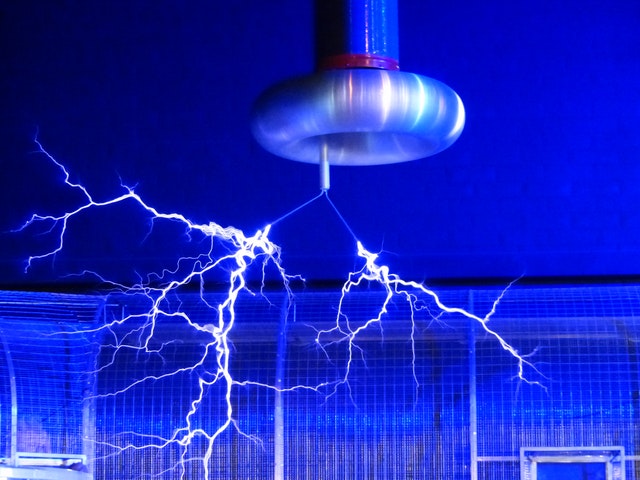
A-Level Physics has a reputation for being one of the hardest A-Level subjects available, but even with this reputation, it is a very popular and very useful subject to hold. With the study of the course you get to look at the theoretical as well as the practical as you explore the phenomena of the universe.
A popular requirement for degrees relating to Medicine and Engineering, it’s easy to see why you will have to complete tasks relating to experiments, formulas and calculations, graphs, and conceptual explanations and what’s more, all of them at the same time!
Can A-Level Physics be Studied Online?
Absolutely yes! Even though the course itself is very technical in nature and holds a practical element, it is still absolutely possible for distance learning students to study and successfully complete the course. Throughout your studies, you will refer to the theory of the practical elements of the course, getting to watch and observe them through videos and interactive quizzes, before attending a centre to try the practicals for yourself. The same centre where you practice the practicals will be where you are also assessed for them.
What Degrees can I Study with A-Level Physics?
A-Level Physics is one of those courses that really does open doors for students and gives them a wide range of options. Listing all the degree courses you can study with A-Level Physics would take quite some time, but to give you an idea of what you could look at studying at university, see the list below:
- Architecture
- Biochemistry
- Engineering
- Dentistry
- Medicine
- Nursing
- Physics
- Teaching
Ready to Start Studying Physics?
£395.00
AQA A-Level Physics studies subjects like mechanics, particles, radiation and astrophysics. You will develop and hone your skills in the subject as well as gaining a real enthusiasm for the subject matter. Physics makes an ideal choice for those students with interests in medicine, science and engineering.
Studying A-Level Physics provides you with an understanding of the fundamental principles of the universe, giving you a great stepping stone to carry on your studies at university.
When can I start the courses? Right away.
How do I study the courses? Online.
Is there a tutor? Yes.
How long are the courses? 1 or 2 years (you decide).
Where can I read full course info? Full course information.
Can I spread the cost of my fees? Yes, we offer simple payment options with no interest.
Online AQA A-Level Physics Frequently Asked Questions:
How do I study the course? Online. Where can I study from? UK. How long is the course? 1 or 2 years. Are there entry requirements? No. What certificate do I get? AQA A-Level Physics What can I do with the qualification? Study degree qualifications or higher level Diplomas. What level is the course? Equivalent to Level 3 Diplomas, USA Advanced Placement Program, Matriculation Certificate. Are exams included? No, you have to book these separately. When can I start? At any time.More Information
Your online AQA A-Level Physics course will come with full tutor support for the length of your studies. You will have access through an online learning portal to all materials and information that you need to study and learn in preparation for your examinations. The course materials have been specially written to enable students to self study the course. You can work through the syllabus at a pace and rate that suits you. Within the course, there is a combination of interactive elements, reading and self assessment questions for students to enjoy and work through as they progress their studies. You can opt to study this A Level course over 1 year or 2. Fast tracking your learning is the best way to get your results quickly ready for University. If one year isn’t enough for your studies, you can extend your learning time for free. Examinations for AQA A-Level Physics are held every year in the June examination period. If you need more help or advice regarding studying this course, contact one of our helpful team for more assistance.AQA A-Level Physics Syllabus
This course will cover the following areas of study:- Develop mathematical and problem solving skills
- Understand how Physics is used in a wider context
- Preparation for further study and or careers related to the subject
- Understand the impact sciences have on both the economy and society
- Develop scientific explanations
- Analyse and interpret data
- Investigation into the variation of the frequency of stationary waves on a string with length, tension and mass per unit length of the string.
- Investigation of interference effects to include the Young’s slit experiment and interference by a diffraction grating.
- Determination of by a free-fall method.
- Determination of the Young modulus by a simple method.
- Determination of resistivity of a wire using a micrometer, ammeter and voltmeter.
- Investigation of the emf and internal resistance of electric cells and batteries by measuring the variation of the terminal pd of the cell with current in it.
- Investigation into simple harmonic motion using a mass-spring system and a simple pendulum.
- Investigation of Boyle’s (constant temperature) law and Charles’s (constant pressure) law for a gas.
- Investigation of the charge and discharge of capacitors. Analysis techniques should include log-linear plotting leading to a determination of the time constant.
- Investigate how the force on a wire varies with flux density, current and length of wire using a top pan balance.
- Investigate, using a search coil and oscilloscope, the effect on magnetic flux linkage of varying the angle between a search coil and magnetic field direction.
- Investigation of the inverse-square law for gamma radiation.
Examination Information
- AQA A-Level examinations can only be carried out in the UK.
- Examination period is in the June examination period.
- AQA A-Level Physics course code: 7408





